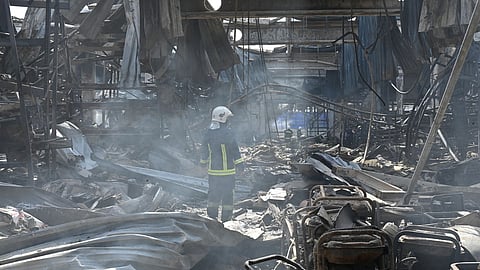Untested ETFs pitched to investors as hedge against global chaos
Amid global geopolitical tensions, nations grapple with intricate alliances, economic rivalries, and security concerns. Diplomats engage in delicate negotiations, while citizens navigate uncertainty. The delicate balance between cooperation and conflict shapes the world's destiny.
Sign up for your early morning brew of the BizNews Insider to keep you up to speed with the content that matters. The newsletter will land in your inbox at 5:30am weekdays. Register here.
By Daniel Flatley
War in the Middle East and Europe, US-China tensions, climate change, threats from new technologies — geopolitical risk is everywhere. A coterie of fund managers are pitching a class of ETFs that claim to offer a hedge for all that uncertainty.
___STEADY_PAYWALL___

